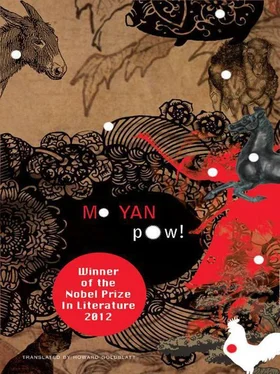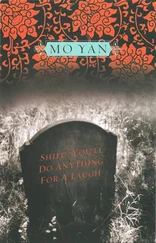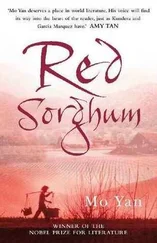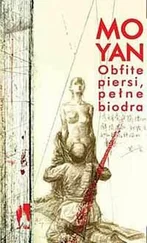‘It won't do us any good to go tell Lao Lan,’ they said. ‘You may deny you're his protégé but it's obvious you two have a special relationship. Otherwise, there's no way he'd have appointed a boy without a hair on his crotch as workshop director and given him the right to eat all the meat he wants.’
‘If you want to out-eat me, I accept the challenge. There's no need to disturb Lao Lan over something so silly.’
‘That's exactly what we want,’ they said. ‘To see who's the champion meat-eater. You can count us as your drill squad. If you can't beat us, you can forget about entering a real contest. It would be humiliating, and not just for you. The plant would suffer, and that would include us. So we challenge you to a contest, at least in part as an expression of fairness.’
‘Good,’ I said. ‘We can start tomorrow and, since public spirit has entered the picture, I'm going to take this very seriously. Now we must inform Lao Lan, but don't worry, I'll assume full responsibility. And we need to establish ground rules and conditions. First, of course, is quantity. If you eat a pound and I eat eight ounces, that's simple, I lose. Next, speed. If we both eat a pound but I finish in half an hour while it takes you an hour, I win. Third, post-contest. Anyone who throws up what he's eaten can't win. Style points are received only by keeping down what you've eaten. Oh, and one more thing. One round won't be enough—the contest must stretch over three days, or five, even a week or a month. In other words, all contestants have to come back day after day. Someone might be able to eat three pounds the first day but only two the next and by the third day he's lucky if he can get down one. A person like that isn't a true meat-eater and definitely not a meat-lover. Meat-lovers have an ongoing relationship with meat, day after day. We never tire of eating it—’
‘That's enough! You're can't scare us off with bluster. All we're talking about here is stuffing meat into your mouth. So, whoever eats the most in the shortest time without puking wins, right?’
I nodded.
‘Then go talk to Lao Lan. We'll be waiting to begin. I'd like to start today,’ said one of them, patting his stomach. ‘This belly hasn't been greased in a long time.’
‘It's best to ask your un-patron to lay out plenty of meat,’ said one of his companions, ‘I can eat half a cow at one sitting.’
‘Half a cow? That's nothing!’ another retorted. ‘Half a cow will just get me started. I can finish off the whole thing.’
‘All right! Wait here. And try not to eat anything until the contest so you can start with an empty stomach.’
‘Don't worry,’ they laughed, patting their stomachs, ‘they're empty all right!’
‘And I think you'd better go home and make arrangements with your families. Too much meat can be fatal for some.’
Their eyes blazed with contempt for a moment and then they burst out laughing. ‘Not to worry, youngster,’ one of them said. ‘Our lives aren't worth anything.’
‘And even if it's fatal,’ said another, ‘at least we'll die happy!’
The enormous hulk that was Lan Laoda's son, surrounded by fresh-cut blooms, lies not so much on the bier as on a bed of flowers. Dozens of mourners—all in black—walk round it amid the soft sounds of funereal music. Lan Laoda stands, bent at the waist, looking down into the face of his son. Then he straightens up, raises his head and faces the mourners with a broad smile. ‘From the day he was born,’ he says, ‘my son lived in the lap of luxury. He knew neither suffering nor worry. His only wish in life was to eat meat, and that wish was never denied him.’ Looking down at the hillock that was his son's belly, then continues: ‘After consuming a tonne of meat, he slipped away painlessly in his sleep. His was a happy life, and I carried out all the responsibilities of a father. What I find most gratifying is that I was with him when he died and that I am now giving him the finest funeral possible. If a netherworld exists, my son will never know an unhappy moment, and now that he is gone I have no more concerns. I am hosting a banquet at the manor tonight, to which you are all invited. Please come in your finest clothes and bring lovely women with you to share the best food and drink money can buy.’ At the manor that evening, Lan Laoda raises an amber glass of VSOP brandy, immersed in the aromas of gourmet dishes, the liquor swirling in his glass, and announces grandly: ‘To my son, who knew the best that life has to offer and who then passed away peacefully!’ Grief seems not to have touched him, not at all.
An outdoor contest between the three workers and me commenced in front of the plant kitchen.
The episode occupied my reveries in the days and months that followed, and never failed to make my mind wander far from whatever I was doing or thinking at the moment. It would always be that day all over again.
The contest was set for six in the evening. It was the end of the day shift, and time for the night-shift workers to arrive. It was midsummer, the longest day of the year. The sun was still high in the sky, and the peasants had not yet come home from the fields. The wheat harvest was in and the smell lingered in the air. New wheat lay drying in the sun on the road in front of the plant gate and the occasional gust of wind carried the smell of farmland into the compound. Though we continued to live in the village and were listed as village residents, we were no longer a peasant household. We water-injected the animals in the day and slaughtered them in the night. The inspectors added their blue stamps to the meat and we sent the meat into town. Uncle Han's meat inspector showed up dutifully, ready to stamp the meat, a paragon of responsible public service. But not for long; after the first few nights he left his stamp and inkpad in the kill room for us to do it ourselves. In order to prevent the injected water from leaking out and lowering the weight and, more importantly, the quality, of the meat, we sprayed its surface with an anti-leak substance (which neither protected nor endangered the health of the consumer). Since we hadn't yet installed cold-storage rooms, the meat had to be delivered the same day the animals were slaughtered. We owned three delivery trucks that had been modified to carry fresh meat, and which were driven by ex-servicemen hired for their ace driving skills, their take-no-prisoners attitude and their alarming appearance. You wouldn't want to mess with these men. At about two every morning, a pair of ageing gatekeepers pushed open United's loudly creaking steel gate and the delivery trucks, loaded with trustworthy meat, slipped out of the compound, one after the other, made quick turns and then slid onto the highway. Their breathing adjusted, like spirited horses, they then gathered speed and their headlights lit up the road to town. I knew that the trucks carried nothing but meat injected with clean well water to guarantee its freshness and safety. But every time I watched them slip out of the compound in the pre-dawn darkness and then speed up the highway, I would be possessed of the nagging feeling that their cargo was actually contraband—not meat but explosives or drugs.
Here I must put to rest the long-standing misconception that all water-injected meat is contaminated. Admittedly, when individual families in Slaughterhouse Village illegally injected their meat with water amid unsanitary conditions and via unsanitary procedures, much of what was produced was of an inferior quality. But at United, the move from post-slaughter to pre-slaughter injection was nothing less than revolutionary, a turning point in animal-slaughter history. Lao Lan said it best: ‘One cannot overstate the significance of this revolutionary moment.’ And there was another important factor that ensured that United's water-injected meat was fresher than everything else: we could have used tap water but we didn't, since it contained additives like chlorine. Our products were what we now call organic, with no chemical additives. Which is why I insisted we treat our animals with pure, crystalline well water, water superior to both its distilled and mineral counterparts. It was like fine wine. Red, puffy eyes caused by internal heat can be cured with just one bath in our spring water. Yellow urine also caused by internal heat clears up completely after two cups of the same. Since this is what we injected in our animals before their slaughter, you can imagine the superior quality of the meat they produced. If you could not eat our meat with complete confidence, then you were a pathological worrywart. Everyone complimented us on our products, which were sold exclusively in urban supermarkets. I hope that when people hear about water-injected meat, they won't think of putrid meat produced in filthy, illegal butcher sites. Our meat was succulent, bursting with flavour and glowing with the air of youth. Too bad I can't show you any of our water-injected meat, too bad I can't recreate my sterling achievements, too bad I can only experience my, as well as United Meatpacking Plant's, glorious history by calling upon my memories.
Читать дальше












